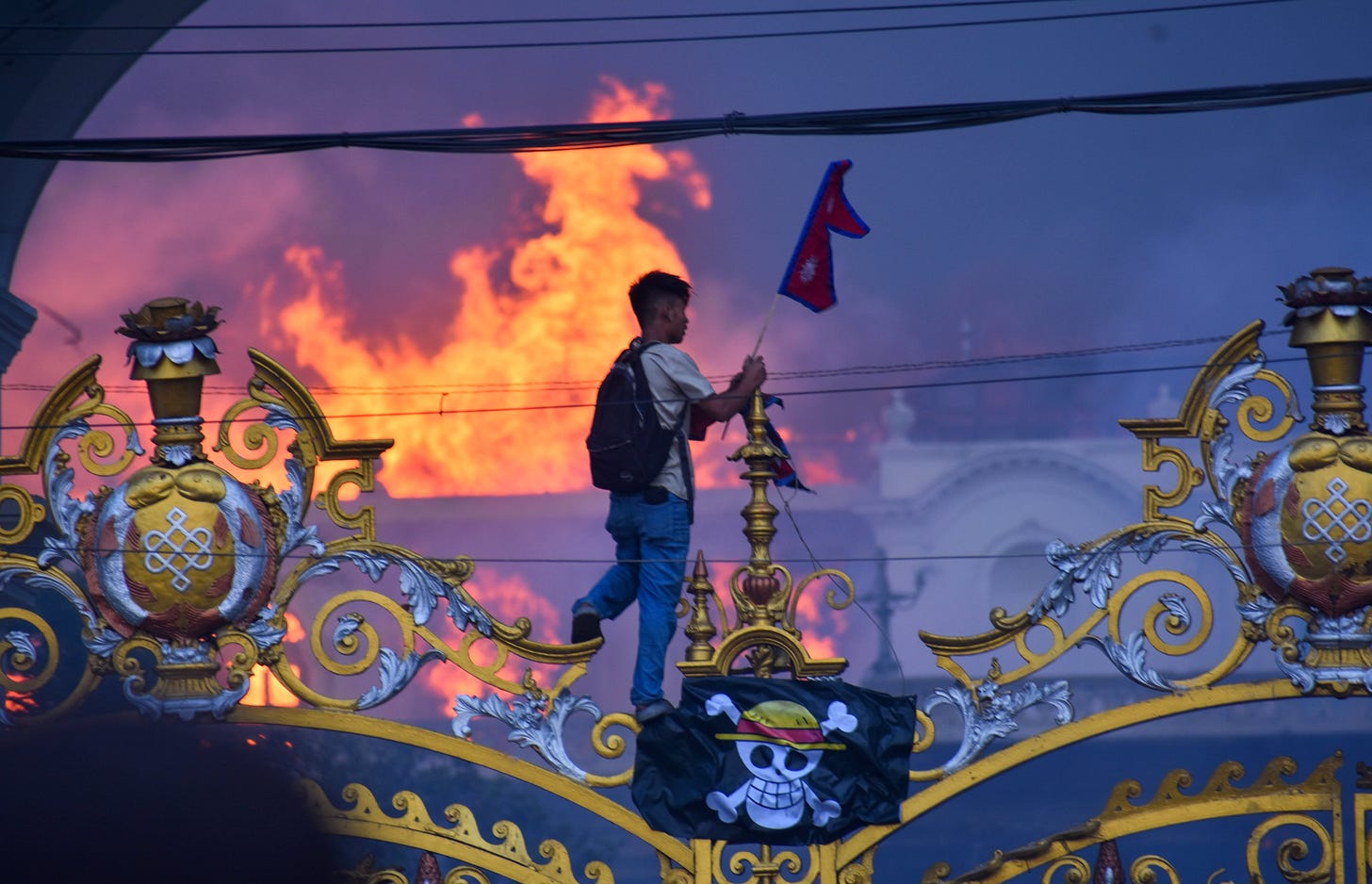Gen Z Revolution Versus All National Security States
There are signs of a Gen Z-led world transformation, but they’re coming from the Periphery of the world-system, not the imperial Core.
Sometime last month, Nepali youth started circulating memes on TikTok and Instagram of “nepo babies”—a double-barreled critique of the incompetence and corruption of its not-meaningfully-democratic ruling regime. Inequality had been visibly bad for years, and getting worse. Your most likely path to Gucci slides and swimming pools was to be a politician,…


